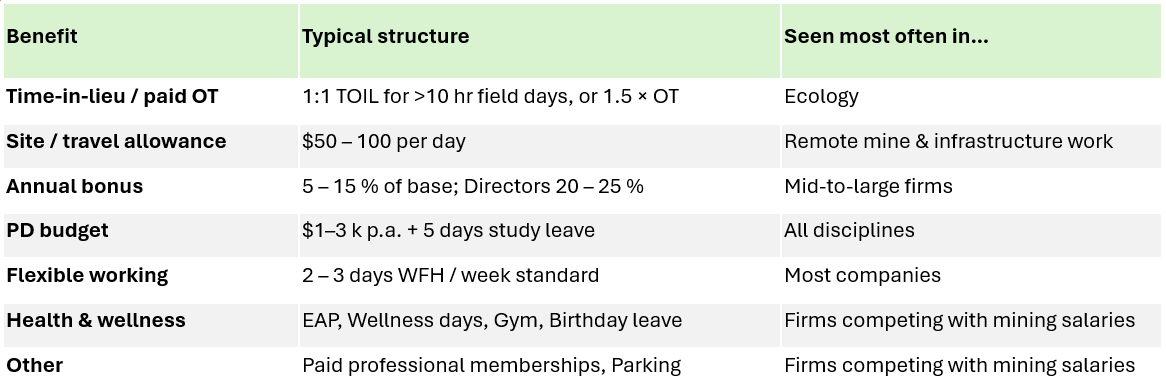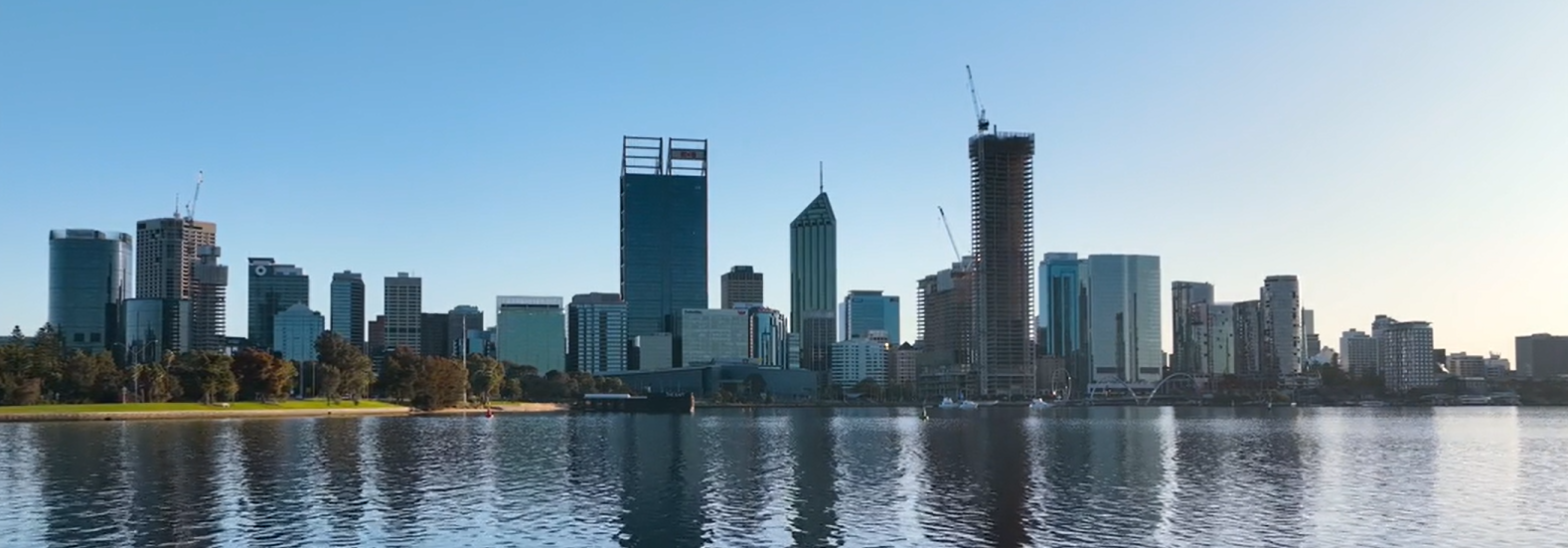FY 2025 Environmental Consulting Salary Guide & Market Advice
WA Environmental Consulting Salary & Market Advice 2025
By Ben Oakley - Principal, Gather Recruitment.
As a Perth-based recruiter specialising in the Environment and water sectors, I spend a lot of time discussing jobs and salaries with clients and candidates including ecologists, botanists, zoologists, contaminated land and approvals specialists.
Every candidate screening conversation, job offer negotiation and job brief we take from clients gives us a data point for current market salaries.
Since there is a lack of publicly available data for clients and candidates to refer to when discussing annual reviews, I’ve compiled a guide below to help benchmark with confidence for the new financial year.
Environmental consulting salaries in Western Australia vary based on both experience level and discipline. Table 1 below summarises base salary ranges (in AUD, excluding superannuation) for key roles and specialisations. These figures serve as a benchmark to validate against external data.
Table 1 – Base Salary Ranges for Environmental Consultants

- Figures shown are for base salaries only with 12% Superannuation (from 1st July 2025) on top of these
- Figures can vary outside these bands based on company size and specific demand for a role.
- Job title can vary salaries offered at 'consultant' and 'mid level' for candidates with same number of years experience (eg 3 or 5 years)
- “+” indicates potential higher earnings at top end
Perks and Benefits in the Environmental Sector

Beyond base salaries, employers are leveraging a range of perks and benefits to attract and retain environmental consultants. Many of these perks are especially important given competition from other sectors (like mining) and the demanding nature of consulting work:

- Paid Overtime / Time in Lieu (TIL): It is now common for consultancies to compensate fieldwork beyond standard hours. For example, ecology field staff often accrue 1:1 TOIL for long field days or receive overtime (sometimes at 1.5× rate) for extensive site work. This is particularly prevalent in ecological consulting, where seasonal field surveys lead to spikes in hours. The availability of TIL helps offset lower base pay for ecologists by rewarding their significant time spent in remote field locations.
- Site Allowances: When projects require travel to remote mine sites or infrastructure projects, many firms pay a site or travel allowance (typically on the order of $50–$100 per day on site). This helps compensate for the inconvenience of remote work and is most often seen in roles that service the mining and resources sector.
- Annual Bonuses: Bonus schemes are increasingly part of the “total reward” package. Mid-to-large environmental consultancies commonly offer annual bonuses of 5 to 15% of base salary for staff, with higher percentages (20–25% of base) for senior leaders and directors. These bonuses are usually tied to company performance or personal billable targets. While not all firms guarantee bonuses, the opportunity for a 5 to 10% bonus can meaningfully boost total compensation and is a key perk highlighted in job offers.
- Professional Development (PD) Support: Almost all employers provide a dedicated PD budget and study leave. A typical offering is $1,000–$3,000 per annum for courses or certifications plus up to 5 days of paid study leave. This encourages consultants to obtain further training, attend conferences, or maintain professional certifications. Given the evolving nature of environmental regulation and technology, such continuous development is highly valued by professionals.
- Flexible Working Arrangements: The post-pandemic norm of flexibility is now firmly entrenched in environmental consulting. Hybrid work is standard and many firms allow 2 to 3 days working from home (WFH) per week as a default. Flexible hours and remote work options are now expected and most consultancies have adjusted policies accordingly. This is a notable shift from earlier years and is used as a selling point to compete with the generally more structured site-based roles in industry.
- Health, Wellness & Leave Benefits: To improve work-life balance and wellbeing, firms are offering perks like Employee Assistance Programs, “wellness days” or extra paid leave days, gym subsidies, and birthday leave. Such benefits are especially emphasized by consultancies that aim to rival the generous packages of mining companies. For example, some provide additional paid parental leave or volunteer leave, and a few have introduced “mental health days” as part of the annual leave allowance. All these contribute to a more attractive workplace culture.
- Other Perks: Additional incentives seen in the market include paid professional membership fees (for institutions like EIANZ, ECA, Engineers Australia or AIG), mobile phone and laptop, novated car lease options, and even paid parking or transit allowances. While these have smaller monetary value, they signal an employer’s commitment to reducing employees’ out-of-pocket expenses. Companies that struggle to match high salaries (e.g. against mining) often bolster the overall offer with such extras.
Overall, the benefits in environmental consulting are focused on enhancing work-life balance and total compensation beyond base pay. Graduates are often willing to trade a few thousand in base for perks like overtime pay, mentoring, and a clear field/office balance.
Employers are heeding this by advertising the complete package (flexibility, allowances, career development) rather than salary alone. The prevalence of perks like flexible working and wellness programs has grown in direct response to talent market pressures with consultancies trying to differentiate themselves and mitigate the lure of higher-paying sectors through a positive workplace environment and benefits.
Hiring Demand, Skills Shortages & Sector Shifts

The environmental consulting job market in Australia and especially WA is currently very active, with several trends worth noting:
- High Demand for Mid to Senior Level Consultants: There is intense competition for consultants in the 5-10 year experience range. Employers report that Consultants with this experience are being poached the fastest. This cohort is highly valued because they can run projects independently but are not yet abundant in supply. Many mid-level consultants have multiple job options, leading to rapid promotions and pay raises as firms strive to retain them. In fact, the market is seeing fast-tracking of early career consultants and it’s not uncommon now for standout performers to reach Principal level in under 15 years, which used to be rare. The message for employers is to “lock in the mid-levels” with clear development plans and career progression, rather than relying solely on incremental salary increases.
- Skills Shortages in Specialized Areas: Several niche skill sets are in short supply. For example, hydrogeologists and contaminated land specialists with PFAS remediation experience are particularly scarce relative to demand. PFAS contamination has become a major issue in soil and water, generating steady work in remediation thus pushing up demand (and salaries) for contaminated site consultants who understand emerging remediation techniques. Similarly, experienced flora and fauna ecologists in WA are hard to find and the pool of locally knowledgeable botanists/zoologists is very limited. Despite very high demand (e.g. for mining and infrastructure biodiversity surveys), this shortage had historically not translated to higher salaries, but recent hiring wars are now forcing increases. Another area of growth is ESG and sustainability consulting, which overlaps with environmental approvals and professionals who can navigate new ESG reporting frameworks or climate risk assessments are becoming more sought after, although this is still an emerging sub-sector.
- Mining & Critical Minerals: Western Australia’s mining sector is driving new project developments, which in turn fuels demand for environmental approvals, permitting and compliance expertise. The WA government’s Critical Minerals Strategy acknowledges that these projects require highly skilled environmental professionals who are in high demand. Consultancies report upticks in work related to Mine Closure planning, Environmental Impact Assessments (EIA) for new mines, and regulatory approvals for expansions. This mining boom is a double-edged sword for consulting firms as it provides plenty of project opportunities, but also means mining companies are directly hiring more in-house environmental advisors, often at higher salaries. Additionally, major infrastructure projects (renewable energy, rail, roads, water infrastructure) and government sustainability initiatives are contributing to a strong pipeline of work across the environmental sector, keeping recruitment levels high.
- Market Stabilisation and Outlook: The market in 2024/25 is stabilising yet still candidate-driven. The extreme skills shortage is easing slightly as more graduates enter the field and some overseas talent returns, but employers remain cautious in hiring. There is a sense of optimism with increased business activity, yet many firms are hesitant to over-hire. This caution presents an opportunity for the bold and candidates with strong skill sets can command premium offers, and forward-thinking consultancies can snap up talent while competitors hesitate. Retention is as crucial as recruitment; factors like team culture and job security are now as important as salary in keeping staff engaged. In WA, most observers expect the environmental consulting sector to remain busy through 2025, given the backlog of projects and regulatory drivers (e.g. tighter mine rehabilitation requirements and new environmental standards) keeping consultants in demand.
What to do from here...

Tips for Employers
1. Secure your mid to senior levels before someone else does
Consultants with 5 - 10 years’ experience are hot property. This group is experienced enough to run projects independently, but not yet priced out of the market. If you’re not offering a clear development pathway, regular progression conversations, and structured support (PD budgets, mentoring, secondments), don’t be surprised when they jump ship for a $10k bump and a better growth story.
2. It’s not just about the base salary
Especially at the graduate and early-career level, candidates are often willing to trade $3k–$5k off their base in exchange for the right mix of perks - overtime pay or TOIL, flexible field/office balance, extra leave, paid PD, and a decent team culture. If you offer these things, shout about it. Include them clearly in your job ads and interview conversations. “Total reward” sells better than “competitive salary.”
3. Invest at the top to build stability
By the time someone hits Principal or Technical Director level, an extra $10k in salary won’t excite them to make a move. What they’re really after is buy-in and that means equity, significant profit share, leadership responsibility, or the chance to shape the future of the business. If you want to retain high-level technical leaders, don’t just offer more money - offer them a seat at the table.
4. Don't lowball - candidates talk
The environmental sector in WA is small. If you're offering significantly under market, word spreads fast. Candidates are well-networked and often have multiple offers on the table. If you want top talent, benchmark your packages honestly and be prepared to justify them.
Tips for Job Seekers
1. Know your value - but match it to business impact
It’s one thing to want the top end of a salary band - it’s another to justify it. If you can demonstrate how your skills reduce project risk, attract clients, or deliver commercial outcomes, you’re in a strong position. Being able to run field teams, liaise directly with regulators, or bring in new business puts you in the frame for higher offers - but it also comes with higher expectations.
2. Ask smart questions about bonuses and overtime
Two roles might both offer $110k base, but one comes with a 15% bonus and 1:1 TOIL for fieldwork. That’s potentially $15k – $20k more in your pocket annually. Always confirm what the criteria for benefits are and ideally get it in writing. Check whether bonuses are discretionary or structured, and how field time is compensated.
3. Keep a brag file
Start tracking your wins. Log utilisation / billable hours, project milestones, client feedback, regulatory wins, or commercial outcomes. When it comes time to negotiate a raise or apply for a new role, being able to quantify your contribution makes your value harder to argue with and easier to reward.
4. Consider the whole package
Higher salary might mean stricter billable targets, or less flexibility. Lower base might come with better mentorship, work-life balance, or a shorter commute. It’s not always about the dollars - think about what matters to you personally day-to-day.
We hope you have found this information useful...

If you need a confidential market check up, or help filling a gap in your team - Contact Gather Recruitment we’re here to make sure everyone lands in the right spot before the new financial year kicks off.
Gather Recruitment
P: (08) 9288 1707
A: L28,140 St Georges Terrace, Perth, WA
E: careers@gatherrecruitment.com.au
W: www.gatherrecruitment.com.au
| Executive Search | Mining & Resources | Engineering | Environment & Water |




